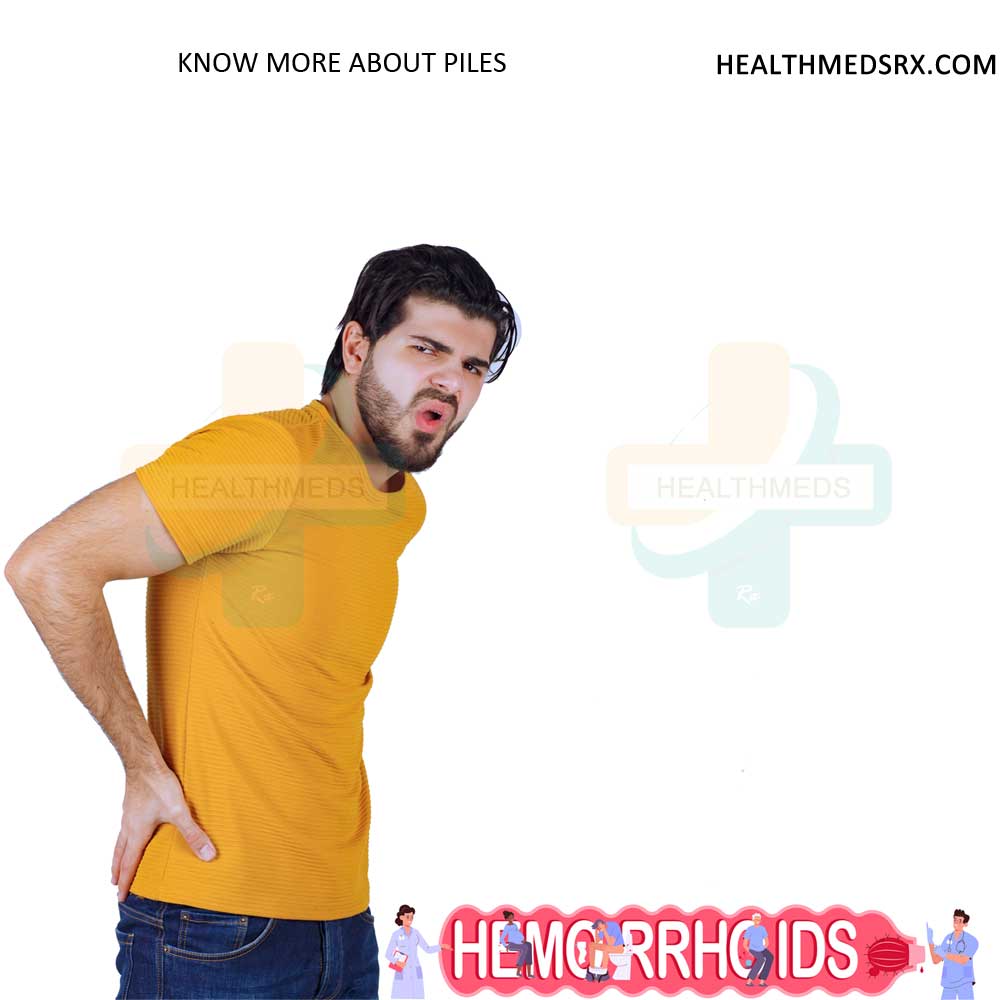What is Piles?
In the medical term piles also called as hemorrhoids, this is a swollen veins in the anus and lower rectum. These swollen veins will cause discomfort and bleeding. In this world, living things are consuming food to keep their body active and strong. After finishing the food digestion process, waste will be eliminated from the body. Consuming food is important for the body’s health, at the same time, the eliminating process is also very important to keep the body clean and healthy. But sometimes the eliminating waste process does not function very well due to some parts issues.
Human beings are eliminating waste from their body in the form of fluid and solid(feces). Kidney will help to eliminate the fluid waste and anus will help to eliminate the solid (feces). The piles issue will make the elimination of solid waste too hard. This also encourages the constipation issue more and more. So, people should know about the symptoms of piles, reasons for piles and how to deal in a better way.
In the United States, every year one million new cases occur and in this number 10 to 20% of those new cases need surgery. Around the world population approximately more than 50 percent of people have this issue. Mostly people who are in the age between 45 to 65 years of age, and a several number of women facing piles during pregnancy. Women facing piles during pregnancy is common and this is easily resolved after having a baby.
Types of Piles
There are three different types. They are.
- Internal– This type found inside the rectum. This will not cause too much pain but tend to bleed.
- Prolapsed– This type will cause severe and painful forms of internal.
- External– This type is found outside. This will make bleeds in a less amount under the skin around the anus.
The Grade 4 piles are the most dangerous stage, which always need treatment through surgery. This condition causes too much severe pain and other symptoms and may lead to other complications if a person does not take care of the body and is just simply left untreated. In this types of piles, the swollen veins prolapse permanently and can’t be pushed back.
Symptoms of piles
The symptoms are not serious and resolve on their own, but people should know about the symptom.
- Painful lumps in and around the anus
- Itching and discomfort around the anus
- Discomfort during and after passing feces,
- Bloody feces.
People can face some more severe symptoms when the condition is worse.
- Too much anal bleeding, possibly leading to anemia
- Infection
- Fecal incontinence
- Anal fistula
- Strangulated hemorrhoid, in which anal muscles cut off blood supply to the hemorrhoid
However, several people with issues may not experience any symptoms.
Causes
They arise in a person’s life due to increased pressure in the lower rectum. The blood vessels around the anus and the rectum will stretch under pressure and may swell or bulge and finally form piles. This may be because of few reasons, they are:
- Chronic constipation
- Chronic diarrhea
- Lifting heavy weights
- Straining when passing a stool
Risk factors
Certain factors may increase a person’s risk of developing piles, including:
- Pregnancy: Up to 50% of women experience pies during pregnancy. This is because of increased pressure on the pelvis, a woman having a higher blood volume, and a higher incidence of constipation.
- Age: People who are 65 years and above having piles and this is a common thing around the world.
- Weight: People who are overweight may have a high chance of developing them.
- Diet: People who are not adding more fiber rich food items, will have a high chance of getting them.
Treatments for Piles
Piles issue is not an incurable health issue, this is easily dealt with by several treatments in the early stage. In some cases living a good lifestyle will help to reduce the risk.
Lifestyle changes
Several health researchers, health care experts and doctors will initially recommend some lifestyle changes to overcome them.
Piles can occur due to pressure during bowel movements. Giving a heavy pressure or straining is the result of constipation. Avoiding oil rich food items and following fiber rich food items will help to keep the stools regular and soft. Drinking too much water in a day will help to avoid them. Reducing body weight also helps to reduce the chances.
Medications
There are so many medicines available to deal with them.
- Pain relievers: OTC pain reliever products such as aspirin and ibuprofen can reduce discomfort caused by piles.
- Stool softeners: Stool softeners and laxatives can help to make passing stools easily and smoothly, which can reduce pain.
- Corticosteroids: Using the corticosteroid creams and ointment can decrease the inflammation, pain, and itching.
Surgical options
If a person has severe prolapsed or internal piles that are bleeding, surgery may be necessary. Surgical procedures include:
- Banding
- Sclerotherapy
- Infrared coagulation
- Hemorrhoidectomy
- Hemorrhoid stapling
Piles can easily deal with the above mentioned simple lifestyle, medication treatments and surgical methods. Several men are facing erectile dysfunction problems because of piles. According to the research, men who have higher risk of piles, they have more chance of erectile dysfunction problem. Erectile dysfunction problems are easily dealt with by using the generic medicine product sildenafil citrate.


